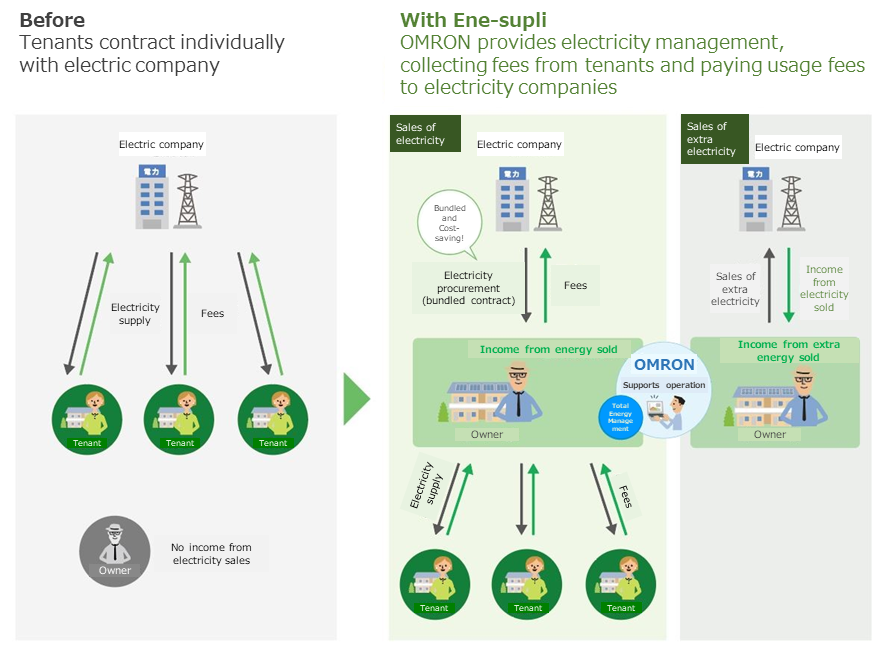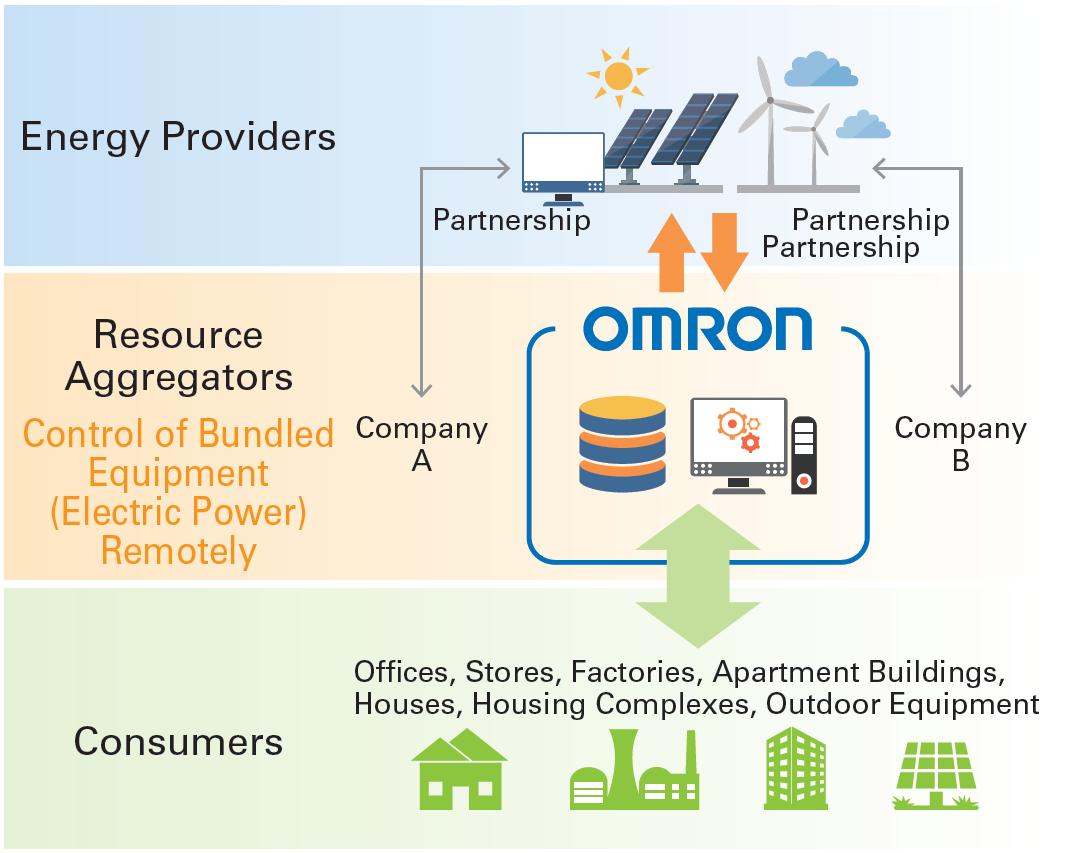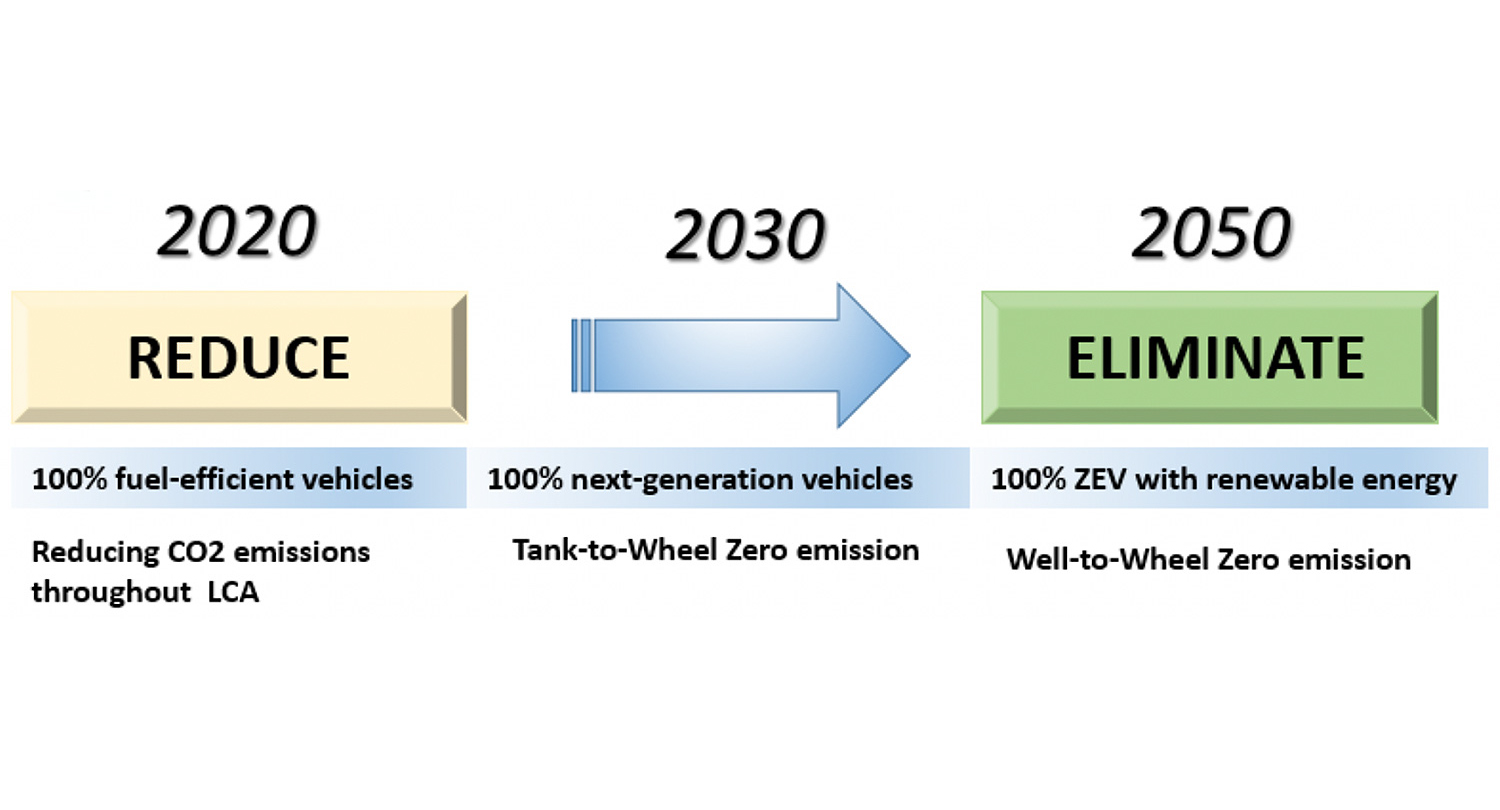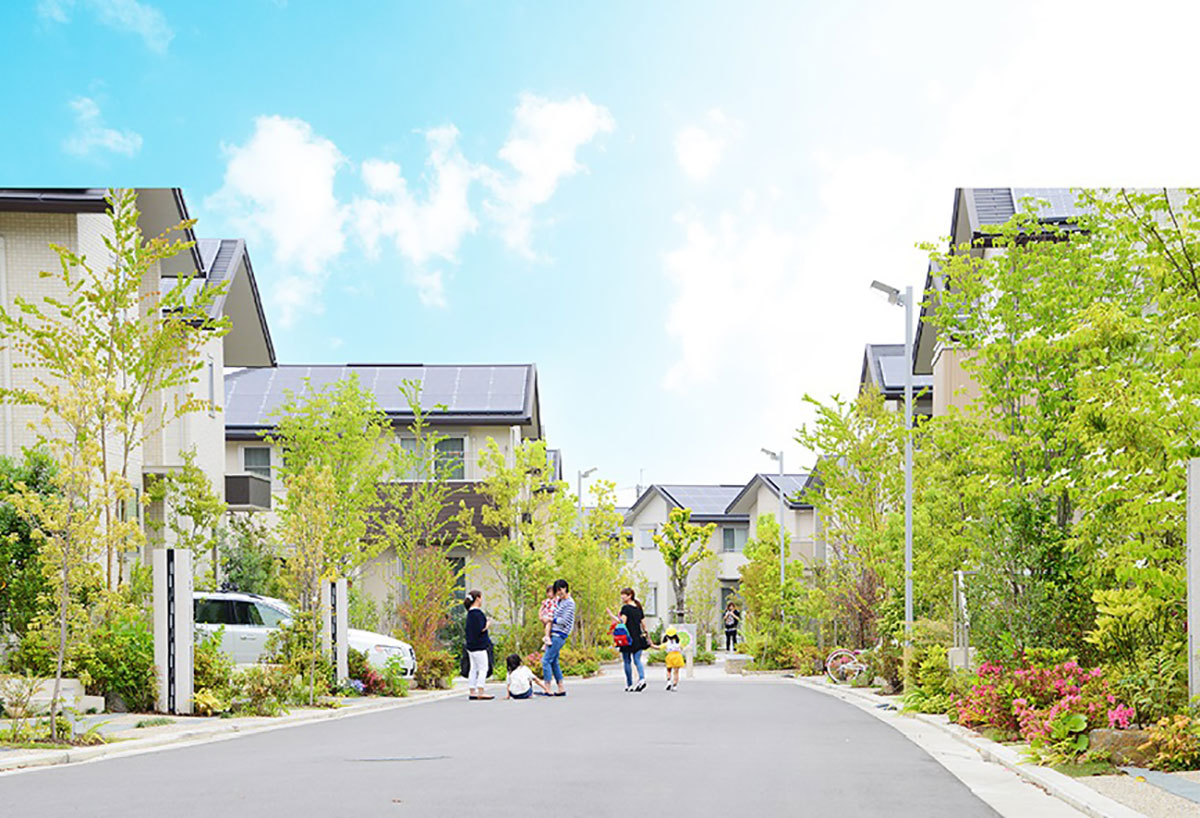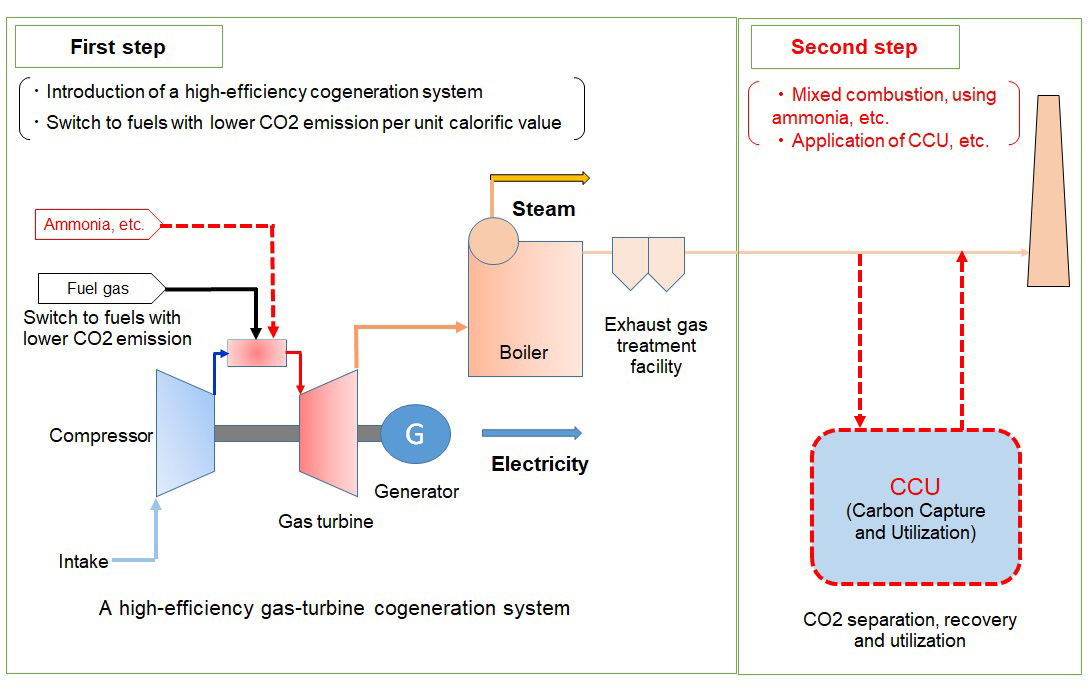OMRON Ene-supli Series: Provide of the Solar Power Energy Management Service Using Storage Battery Systems.
OMRON Corporation
Outline
Project Name
OMRON Ene-supli Series: Solar Power Energy Management Service Using Storage Battery Systems
First Phase is a Service for Low-rise Housing Complexes
Aiming to spread the use of renewable energy, OMRON plans to launch ene-supli, an energy management service using solar power and storage battery systems. As the first phase of this series, OMRON will enter the energy management business by delivering service to low-rise housing complexes beginning spring 2020. Through ene-supli, OMRON will promote the spread of captive consumption renewable energy for use in self-produced electricity. The company will offer security in the form of electricity available during power failures caused by natural disaster, etc., and aid in the creation of a sustainable society.
Description
OMRON is accelerating initiatives to become a total energy management solutions provider and raise social resilience toward global decarbonization. Here, the company will work with a variety of partners to form a domestic electricity aggregation market that will make renewable energy practicable in society. This market will be formed around technology related to the company’s solar power and storage battery systems.
One initiative is the ene-supli energy management service, which incorporates the use of storage battery systems in the management of solar power generated.
Over the past few years, Japan’s feed-in tariff system (FIT) encouraged the rapid adoption of solar power production, expanding electricity production capacity to 50.20 million kW*1, or nearly 15 times the capacity of ten years ago. However, adjustments in the balance of supply and demand for power transmission and distribution systems have yet to meet the rapidly spreading use of renewable energy, resulting in constrained electricity sales at times. Accordingly, future formats for renewable energy usage are expected to shift to a captive consumption model. Power failures due to natural disasters and other causes give rise to the need for systems that achieve captive consumption of electricity.
Ene-supli will begin with services designed for low-rise housing complexes. This service will allow housing complex owners to combine electricity produced internally and electricity purchased from electric companies to provide and sell electricity to tenants using storage battery systems. Using OMRON storage battery systems will increase the volume of renewable energy captive consumption, while at the same time allowing the transmission of this stored electricity, even in times of power failure, providing a greater sense of security to housing tenants. The system will also take care of the troublesome daily tasks of meter reading and deposit management necessary to provide and sell electricity to tenants.
OMRON has an extensive history of selling storage battery systems and PV inverter equipment for solar power generation, contributing to the creation of a sustainable society through the spread of renewable energy. Moving forward to spread the use of renewable energy even further, OMRON will go beyond equipment sales, providing the Ene-supli service which leverages storage battery systems indispensable for the use of renewable energy. In so doing, the company will offer the security of access to electricity during power failures and contribute to greater electricity resilience*2.
*1 50.20 million kW: OMRON survey, September 2019
*2 Resilience: A phrase referring to flexible strength in a rapid recovery overall functionality, even when social systems or certain business functions fail in the wake of a disaster, terrorist incident, etc.
*OMRON has applied for a patent related to a management system that uses solar power and storage batteries in housing complexes to provide electricity generated to tenants and calculates electricity fees for tenants and payments to electric companies for housing complex owners.
The following is supplemental information.
In fiscal 2017, OMRON began operating under the VG2.0 medium-term management plan, which guides the company through fiscal 2020. Under this future-oriented strategy, OMRON identified factory automation, health care, and social solutions as priority business domains which are likely to emerge as social issues.
In the social solutions domain, OMRON provides PV inverters for solar power systems, encouraging the spread of renewable energy to limit CO2 emissions (OMRON enjoys a 35% share of the home-use PV inverter market in Japan), and storage battery systems.
Relying on these strengths, OMRON is accelerating initiatives toward a total solutions project for energy management, leading to the creation of an electricity aggregation market using solar power and storage batteries.
More companies around the world are embracing the international RE100* initiative, adopting renewable energy for the transition to a low-carbon society. Demand for renewable energy is also expected to rise in Japan. This development requires the effective bundling and control (aggregation) of electricity generated through solar power systems. OMRON leverages strengths in equipment installation, servicing, and maintenance to take on the challenge of creating an aggregation business that networks equipment and bundles and controls electricity.
Supplementary information
蓄電システムを使った、太陽光発電エネルギーのマネジメントサービス
「エネサプリ」シリーズ提供開始 ~第一弾は低層集合住宅向けサービス~ リリース(In Japanese)
https://www.omron.co.jp/press/2020/02/c0203.html
OMRON Integrated Report 2019
https://www.omron.com/global/en/assets/file/ir/irlib/ar19e/OMRON_Integrated_Report_2019_en_22.pdf
Sustainability Site
https://www.omron.com/global/en/sustainability/
Sustainability Issues and Goals
https://sustainability.omron.com/en/omron_csr/tasks_goals/
Social Solutions
https://sustainability.omron.com/en/contribution//socialsolutions/
Similar Innovation Challenges
Achieve 2050 decarbonization target with Net Zero Energy House!
Sekisui House, Ltd.
Achieving net-zero emissions by promoting renewable energy use through both our monozukuri and products.
DAIWA HOUSE INDUSTRY CO., LTD.



